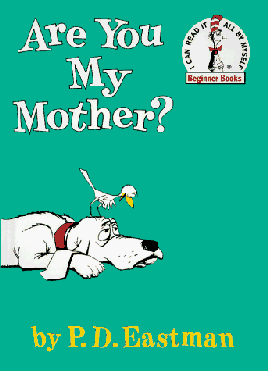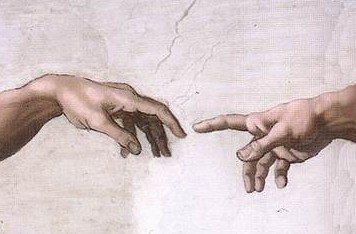Psychology is a science of theory as opposed to immutable law, and the information that I am presenting to you should therefore be considered as ideas rather than facts. Freud, in particular, is a pretty controversial figure, and I readily admit that some of his theories are complete nonsense. Case in point: he believed that women subconsciously see themselves as castrated men and therefore suffer from penis envy and can never feel complete. He also thought that young boys secretly want to kill their fathers and marry their mothers. As a person, Freud also had some less than admirable qualities, which, ironically, were likely the products of his own neuroses. That said, I do believe that some of his ideas actually do hold up. At the very least, they provide interesting analytic lenses through which to better understand the humanity behind the humanities, which is kind of what this is all about. We should remember, too, that Isaac Newton, father of calculus and modern physics, also wrote over one hundred and fifty books about alchemy and even more about his numerological interpretations of the Bible. He was looking for mathematical patterns in the scripture in order to predict future events. My point is that nobody's ideas are all great, so it may be best to consider them each on an individual basis.
| Speaking of bad ideas, George Lucas is talking about a reboot. |
The id is the only component of the psyche that children are born with. Anyone who has ever been around children knows that one of the most important roles of any parent is teaching their kids the proper degree of self-control that will allow them to be responsible adults. If you don't know that, you've probably sat behind me on an airplane. In An Outline of Psychoanalysis, Freud wrote that the id “is everything that is inherited, that is present at birth, that is fixed in the constitution, above all, therefore, the instincts, which originate in the somatic organization and which find their first mental expresison in the id in forms unknown to us” (14). The id is our primal being, our psychological link to the animal kingdom.

A baby who has not yet developed a sense of self has no differentiation between the senses and all that they perceive, which is why an infant has no impulse control, nor does it understand why its needs are not immediately met through magical thinking. Another of Freud's more controversial theories is that this same idea manifests itself in the act of prayer and even in one's belief in a higher power.
Another psychoanalyst named Jacques Lacan took some of Freud's ideas a bit further and suggested that only when a child can recognize its own reflection in the mirror (which happens to be a fairly unique characteristic of our species) does the toddler first perceive itself as an entity that exists independently of its surroundings. It is at this moment that the ego ("I") distinguishes itself from the id ("it") and so begins the process of assigning meaning through dialectics, which is to say that we learn what something is by first determining what it is not. This is not me, so it must be something else, and so on.
This is exactly how early human beings developed self-awareness, and eventually language. Words came to be symbolic representations of the real world from which we would forever be alienated and could never return (and there's that postmodernism again). One of Freud's contemporaries wrote that, “It is perhaps allowable to venture the surmise that it was the geological changes in the surface of the earth, with their catastrophic consequences for primitive man, that compelled repression of favorite habits and thus ‘development’” (Ferenczi 20). In other words, based on evidence that had surfaced in other branches of science around that time, he theorized that tens of thousands of years ago, some major natural event had caused the environment to change rapidly, and early human beings adapted by developing a means of understanding their hostile surroundings. They started looking for patterns. By recognizing the external world as the fundamental opposition to their continued survival, humans learned that they must therefore be something else, and thus began our self-imposed but inevitable alienation from the natural world. One could even consider the tree of knowledge in the Garden of Eden to be a metaphor for the sudden otherness of humanity in relation to the natural world.
As civilizations developed, people realized that there needed to be some basic rules. Basically, they figured out that acting on some of our more animalistic impulses tends to be bad for everybody else, so maybe people should stop doing things like that. We're still working out the details, but I think we're steadily making progress. These rules effectively summarize the superego. Don't kill. Don't abuse. Don't steal. Don't leave empty milk cartons in the refrigerator. Don't wear a cape and yell at traffic. Don't poop your pants and blame it on somebody else. Don't tell everybody that your name is Batman when it's really Steve. You get the idea. The superego is everything that a given society wants people to learn while growing up. As adults, in this sense, the superego effectively represents the counterforce that serves to repress the id, which, according to Freud, is what makes civilization so gosh darned discontent. Basically, the superego is the old guy next door who is always telling you to turn down that damn music. The id is Rodney Dangerfield.
With that, I hope everyone had a good spring break and kept their ids under control, at least within reason. In case you are wondering what all this has to do with comedy, it just so happens that this week's movies are all gross-out comedies, which are fundamentally about transgressions in this never-ending conflict between the id and the superego. As you will read (King chapter 2, first half - pg. 63-77), films such as these are thought to perform specific psychological functions within the minds of viewers. That is, they can either repulse the audience completely or function as a sort of "steam valve," allowing us to vicariously transgress the rules of society. Such films may also serve as a challenge to these rules both within the world of the film and beyond by redefining the boundaries of good taste. I want you to be thinking about these things as you're watching this week's films, which are: Animal House, Borat, or There's Something About Mary. Your screening question is as follows:
In your opinion, does [the film you chose to watch] seem to function more as a "steam valve" or as a challenge to the rules of society, or both? Explain your answer, and support your claims with quotes from this week's reading.
This week, the following students are exempt from writing responses to the screening question, as they are assigned blog posts:
Nicoletta Donofrio - Review of Reviews (World's Greatest Dad)
Josh Gomez - Biography (Alexander Payne)
Cory Jackson - Biography (Bobcat Goldthwait)
Josh Likens - Review of Reviews (Citizen Ruth)
Bradley Szafran - Review of Reviews (Hamlet 2)
Fun fact: this week's reading has more uses of the word 'shit' than I have ever seen in any other academic text. The word 'turd' is also featured on page 70. Enjoy.


No comments:
Post a Comment